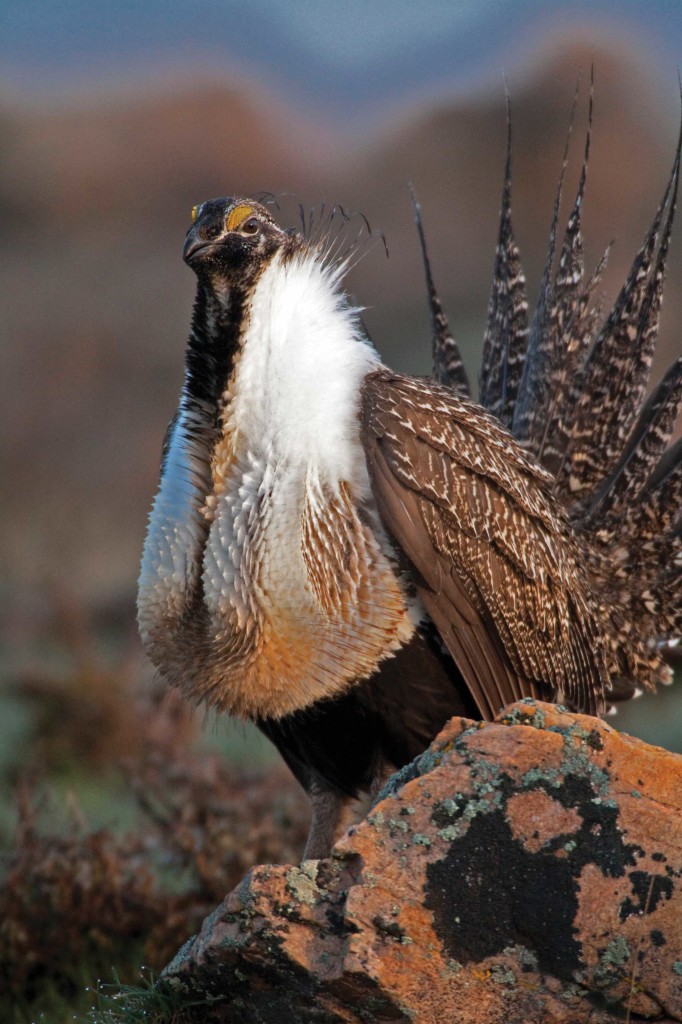Saving Sage Grouse

In the first blush of a fine spring morning, Linda Baker, director of the Upper Green River Alliance, and I disembarked from her truck in Wyoming’s 7-million-acre Upper Green River Valley. “Hey, grouse droppings,” she said.
“Neat,” I said, not sarcastically. They looked like the scat of my Yankee ruffed grouse, only white instead of gray-brown.
“Wait,” she said. “There aren’t enough; this can’t be the lek.” The lek [a sage grouse courtship area] was farther west—toward the snow-streaked, moonlightwashed Wyoming Range. To our north rose the Hobacks and Gros Ventres, darker in their coats of lodgepole pine and subalpine fir. We’d gotten lost in the maze of dirt roads recently cut through this rolling, sagebrush steppe to accommodate the gas industry. The year was 2004.
Lights on gas drilling rigs imparted a New York City ambience to what had recently been de facto wilderness. Ulcerating the surrounding flatlands were 8-acre rectangular well pads next to plastic-lined ponds that held scum-encrusted, hydrocarbon-fouled fracking water. It was oozing onto this parched landscape, killing wildlife forage and damaging the habitat of some the last pure strains of Colorado River cutthroat trout.
SHARE ON
You may also like
The role corn plays for gamebirds and economies ac...
Sportsmen’s conservation policy issues from publ...
Sportsmen’s conservation policy issues from publ...


























